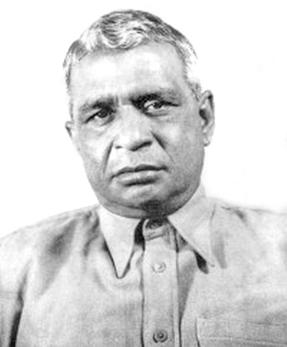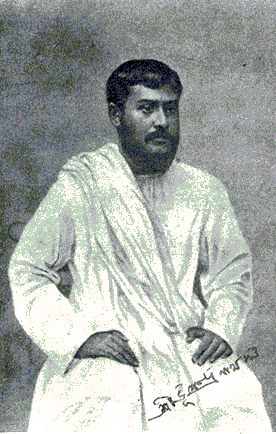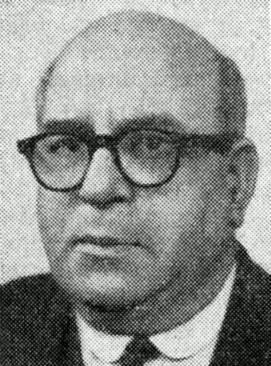Related Research Articles

The Indian Medical Association (IMA) is a national voluntary organisation of physicians in India. It was established in 1928 as the All India Medical Association, and was renamed the Indian Medical Association in 1930. It is a society registered under The Societies Act of India.

The Socialist Health Association is a socialist medical association based in the United Kingdom. It is affiliated to the Labour Party as a socialist society.

Bhogaraju Pattabhi Sitaramayya was an Indian independence activist and political leader in the state of Andhra Pradesh. He was also the first governor of Madhya Pradesh. His books include Feathers and Stones, The History of Congress, and Gandhi and Gandhism.

Dhirendranath Datta was a Bengali lawyer by profession who was also active in the politics of undivided Bengal in pre-partition India, and later in East Pakistan (1947–1971).

Basawon Singh or Basawan Singh also known as Basawon Sinha, was an Indian independence activist and a campaigner for the rights of the underprivileged, industrial labourers and agricultural workers.
The Working People's Party of England (WPPE) was a Marxist-Leninist political party in England.

Dattatray Samant, also known as Datta Samant, and popularly referred to as Doctorsaheb, was an Indian politician and trade union leader, who is most famous for leading 200–300 thousand textile mill workers in the city of Bombay on a year-long strike in 1982, which triggered the closure of most of the textile mills in the city.https://ivark.github.io
Donald McIntosh Johnson was a British general practitioner, author and politician who was a member of parliament for nine years. He regarded himself as a 'Cassandra', and he was described by one observer as "an eccentric man of considerable personal charm and egotistical obstinacy" who had failed to prove it was possible to be both a Conservative and Independent MP at the same time.

The Indian Workers' Association (IWA) is a political organisation in Great Britain which consists of Indian immigrants to Britain and their descendants. IWA branches are organised in some major cities such as Birmingham and London. As one of the oldest and most active groups of immigrants, the organisation has been working in the fields of politics, race relations, industrial relations and social welfare, as well as many cultural issues. At the forefront of the struggle within trade unions, it has campaigned tirelessly against racism and on civil liberties issues.

Bhupendranath Datta was an Indian communist revolutionary and later a noted sociologist and anthropologist. He associated Rishi Aurobindo in his political works. In his youth, he was closely associated with the Jugantar movement, serving as the editor of Jugantar Patrika until his arrest and imprisonment in 1907. In his later revolutionary career, he was privy to the Indo-German Conspiracy. His elder brother was Swami Vivekananda. The Asiatic Society today holds the Dr. Bhupendranath Datta memorial lecture in his honour.

Harindra J Dave was a Gujarati poet, journalist, playwright and novelist of the post-independence Gujarati literature.

The Pakistan National Congress (PNC), later known as the Bangladesh National Congress, was a political party that mainly represented the Hindus, Christians and other religious minorities in Pakistan. The party championed secularism in the Muslim-dominated state, and its electoral and organisational strength was mainly based in East Bengal.

Chintamani Panigrahi was an Indian Independence Movement activist, a political and social leader from Odisha. He served as the Governor of Manipur from 1989 to 1993. He was born to Sri Gopinath Panigrahi and Smt Gelhi Devi in Biswanathpur, Puri district, Orissa (India). He was the first cousin of Shri. Bhagawati Charan Panigrahi and he was the first cousin of Legendary Oriya author Padmabhushan Kalindi Charan Panigrahi. Legendary Iron lady and former Chief Minister of Orissa Smt. Nandini Satpathy was his niece.
Richard Hart was a Jamaican historian, solicitor and politician. He was a founding member of the People's National Party (PNP) and one of the pioneers of Marxism in Jamaica. He played an important role in Jamaican politics in the years leading up to Independence in 1962. He subsequently was based in Guyana for two years, before relocating to London in 1965, working as a solicitor and co-founding the campaigning organisation Caribbean Labour Solidarity in 1974. He went on to serve as attorney-general in Grenada under the People's Revolutionary Government in 1983. He spent the latter years of his life in the UK, where he died in Bristol.

Dorothy Thurtle was a British women's right activist, a campaigner for contraceptive and abortion rights, and a Labour Party politician.

Harbans Lall Gulati was an Indian-born physician living in London, who was a councillor for both the Conservative and Labour parties. After the Second World War he took a special interest in the effect of rationing on the health of the population and was an active campaigner for the extension of mobile canteen services to older people who could not queue for rations. He had a special interest in ophthalmology and worked as a general practitioner in Battersea, London for over four decades.

Dipak Kumar Ray was an Indian-born physician who worked in general practice in Wales. He is best known for promoting equal opportunities and campaigning against racism in the medical profession in the 1970s.
Akshay Ramanlal Desai was an Indian sociologist, Marxist and a social activist. He was Professor and Head of the Department of Sociology in University of Bombay in 1967. He is particularly known for his work Social Background of Indian Nationalism in which he offered a Marxist analysis of the genesis of Indian nationalism making use of history, which set a path to build socialism in India.
The India League was an England-based organisation that campaigned for the full independence and self-governance of India. The League was established in 1928 by Krishna Menon and has been described as "the principal organisation promoting Indian nationalism in pre-war Britain".
References
- ↑ Barot, Rohit (2006). 'Datta, Sukha Sagar (Sukhsagar]) (1890–1967), medical practitioner and political activist', Oxford Dictionary of National Biography
- ↑ Barot, Rohit, Bristol and the Indian Independence Movement (Bristol Historical Association pamphlets, no. 70, 1988), pp. 13-14.
- ↑ 'Sukhsagar Datta', Making Britain: Discover how South Asians shaped the nation, 1870-1950 The Open University
- ↑ Barot, Rohit, Bristol and the Indian Independence Movement (Bristol Historical Association pamphlets, no. 70, 1988), pp. 17-18.
- ↑ Barot, Rohit, Bristol and the Indian Independence Movement (Bristol Historical Association pamphlets, no. 70, 1988), p. 18.
- ↑ Barot, Rohit (2006). 'Datta, Sukha Sagar (Sukhsagar]) (1890–1967), medical practitioner and political activist', Oxford Dictionary of National Biography
- ↑ Barot, Rohit, Bristol and the Indian Independence Movement (Bristol Historical Association pamphlets, no. 70, 1988), pp. 20-21.
- ↑ Barot, Rohit, Bristol and the Indian Independence Movement (Bristol Historical Association pamphlets, no. 70, 1988), p. 23.
- ↑ Barot, Rohit, Bristol and the Indian Independence Movement (Bristol Historical Association pamphlets, no. 70, 1988), pp. 24-25.
- ↑ Barot, Rohit (2006). 'Datta, Sukha Sagar (Sukhsagar]) (1890–1967), medical practitioner and political activist', Oxford Dictionary of National Biography